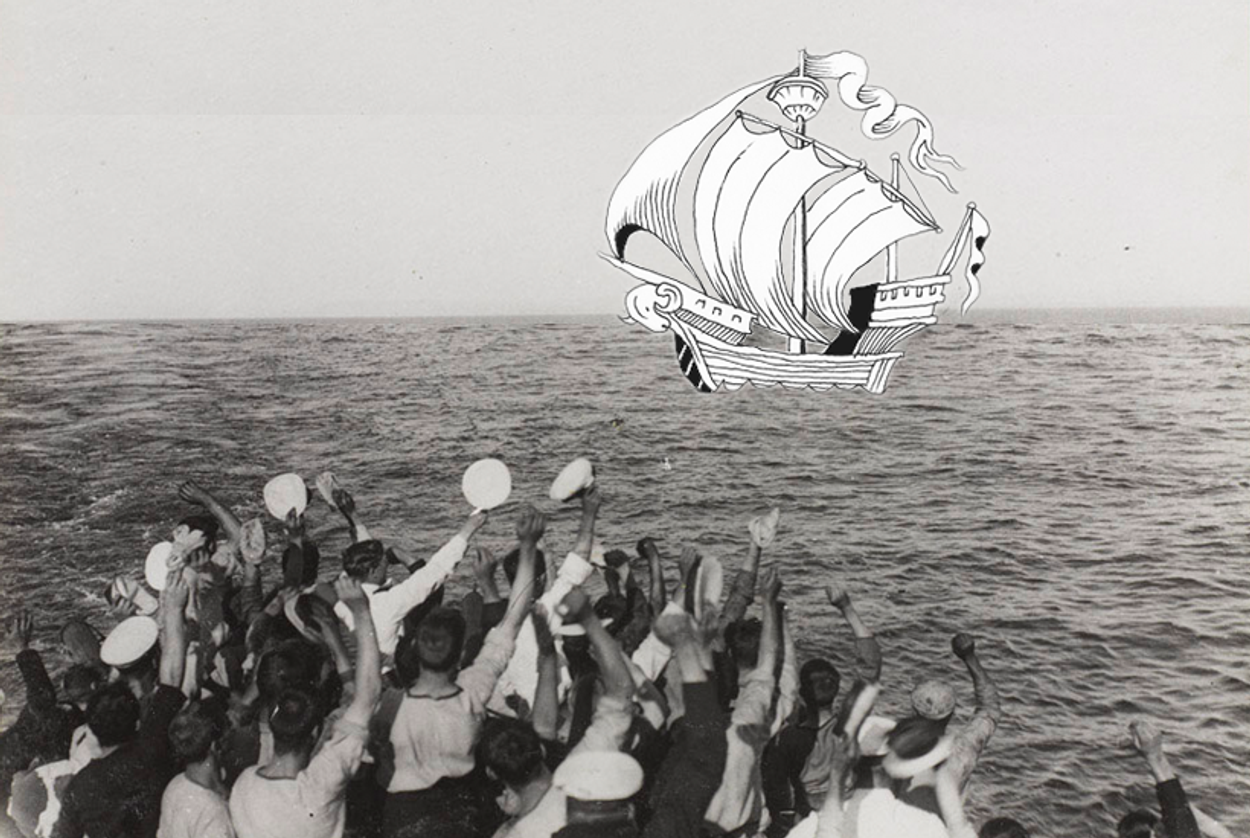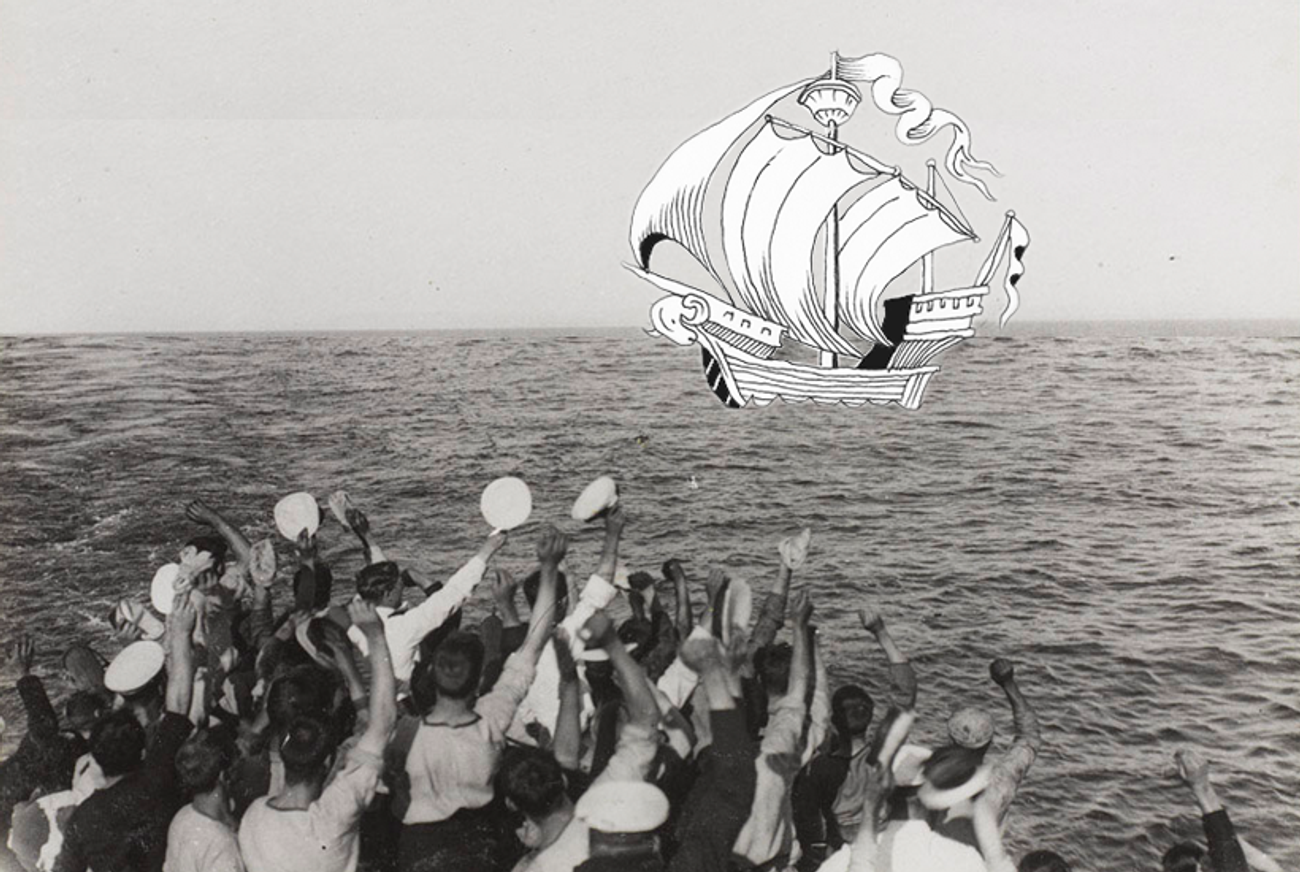The Crack-Up: F. Scott Fitzgerald Might Have Warned ‘TNR’ About Dumb Rich People
Farewell to my beloved magazine, my old and treasured home




The other day I ran into Peter Beinart, who spent seven years as editor of The New Republic, and I asked him why the magazine’s demise was attracting so much attention in the press. I wanted him to say something oracular about The New Republic and its mythic place in American culture. But, too practical for me, he merely observed that a good many people in the opinion-writing business got their start at the magazine, and these people, the TNR alumni, have wanted to have their say. On the other hand, Beinart’s explanation may be a down-to-earth way of making precisely my point. A magazine that commands the angry loyalty of a large number of journalists long after their departure from the place can only be a mythic magazine.
My own contributions to The New Republic began in 1975, and, when I think back on my early experiences, I notice that mythology preoccupied me from the start. I happened to be reading F. Scott Fitzgerald when my first reviews appeared, and one of his books led to another until I had made my way to This Side of Paradise, from 1920, about Princeton students and their post-student lives. And, lo, I stumbled across the ex-Princeton student Tom D’Invilliers, who toils as literary editor of a magazine signficantly called New Democracy. My heart leapt and has never entirely returned to its previous serenity. Fitzgerald is said to have based Tom on a real-life Princeton poet named John Peale Bishop, Class of 1917, but I have always assumed that something in Tom—too cerebral for his own good—derives from another of Fitzgerald’s college friends, Edmund Wilson, Class of 1916. Wilson: one of The New Republic’s titanic literary editors. And absolutely the magazine stands at a mythic center of American life.
The postmortems on TNR have annoyed me for one reason, and that is the tendency on the part of too many commentators to describe the magazine as a policy or political journal. It was always a politics-and-the-arts journal, however, which is a different matter entirely. And the literary section, or “back of the book,” has sometimes counted for more than the erratic wanderings of the “front of the book” political section, even if the politicos do not know it. Such was the case during Wilson’s era, and it has remained the case during the last 30-some years as well, which has been the era of Wilson’s eventual successor Leon Wieseltier.
The literary section has been scandalously great during this period, and its grandeur has owed to several factors. One of these is a rare and peculiar knack that Wieseltier shares with his editor-in-chief and publisher during those same few decades, Marty Peretz. The knack requires extraordinary intellectual breadth, but also a swaggering self-confidence—the kind of self-assurance that can lead an editor to make catastrophic errors in judgment but, even so, allows him to identify young or unrecognized or not-yet fully mature writers and coax the flower into bloom. Peretz’s gift for the discovery and nourishing of talent has been remarked upon, but Wieseltier (who is himself Peretz’s single greatest discovery) commands the same gift on a still broader scale. The critics and writers whose work you may admire in the pages of The New Yorker or The New York Review of Books or other journals are, in a striking number of cases, people whose careers took shape under Wieseltier’s voodoo guidance. There is also the fact that, if you were to print out a roster of critics who contributed notable essays over the years to The New Republic’s back of the book, the roster would differ significantly from what you may have been led to expect by the accusations of racial or male exclusivity that have just now been tossed at the magazine. But discoveries and diversities do not sum up the achievement.
I think that anyone who sits down to read the Wieseltier decades of critical reviews in The New Republic will notice that at some mysterious philosophical level a great many of those hundreds of essays seem to cohere. It is not because they display a particular ideological bent or follow a political line. Something deeper is at work, which I do not know how to describe. (It is a task for a philosopher-historian.) I note a nearly uniform predisposition against the doctrines of determinism, whether they be scientific or economic or identity-political. There has always been, in any case, an intellectual ardor, as if the entire “back of the book” were asmolder with passion—a passion for the creative labors of certain species of writers and artists and thinkers. For the uncorruptible ones, for the ones-of-a-kind, for the people who are allergic to fads and factions and the stratagems of self-advancement. Perhaps the entire section has been animated by the belief, keen and insistent and unstated, that humanity’s fate lies in the hands of those people. This is not the sort of belief that researchers will declare one day to be scientifically confirmed. But it has the advantage of generating a hot-blooded criticism—occasionally cruel or trigger-happy, but always intense, which means thrilling.
This same belief in the intellectual vocation was, as it happens, one of the ideas of the founders of The New Republic back in 1914, naturally in a faintly 19th-century version, odiferous with Leaves of Grass (which is one more reason to have loved The New Republic). A continuity does exist, and it persisted for 100 years, and it was a glory of American culture. And if the stupidities and arrogance of an ignorant plutocrat have brought the run to an end, well, the founders of The New Republic warned us from the start about the insufficiencies of a narrow business civilization.
***
Like this article? Sign up for our Daily Digest to get Tablet Magazine’s new content in your inbox each morning.
Paul Berman is Tablet’s critic-at-large. He is the author of A Tale of Two Utopias, Terror and Liberalism, Power and the Idealists, and The Flight of the Intellectuals.
Paul Berman is Tablet’s critic-at-large. He is the author of A Tale of Two Utopias, Terror and Liberalism, Power and the Idealists, and The Flight of the Intellectuals.